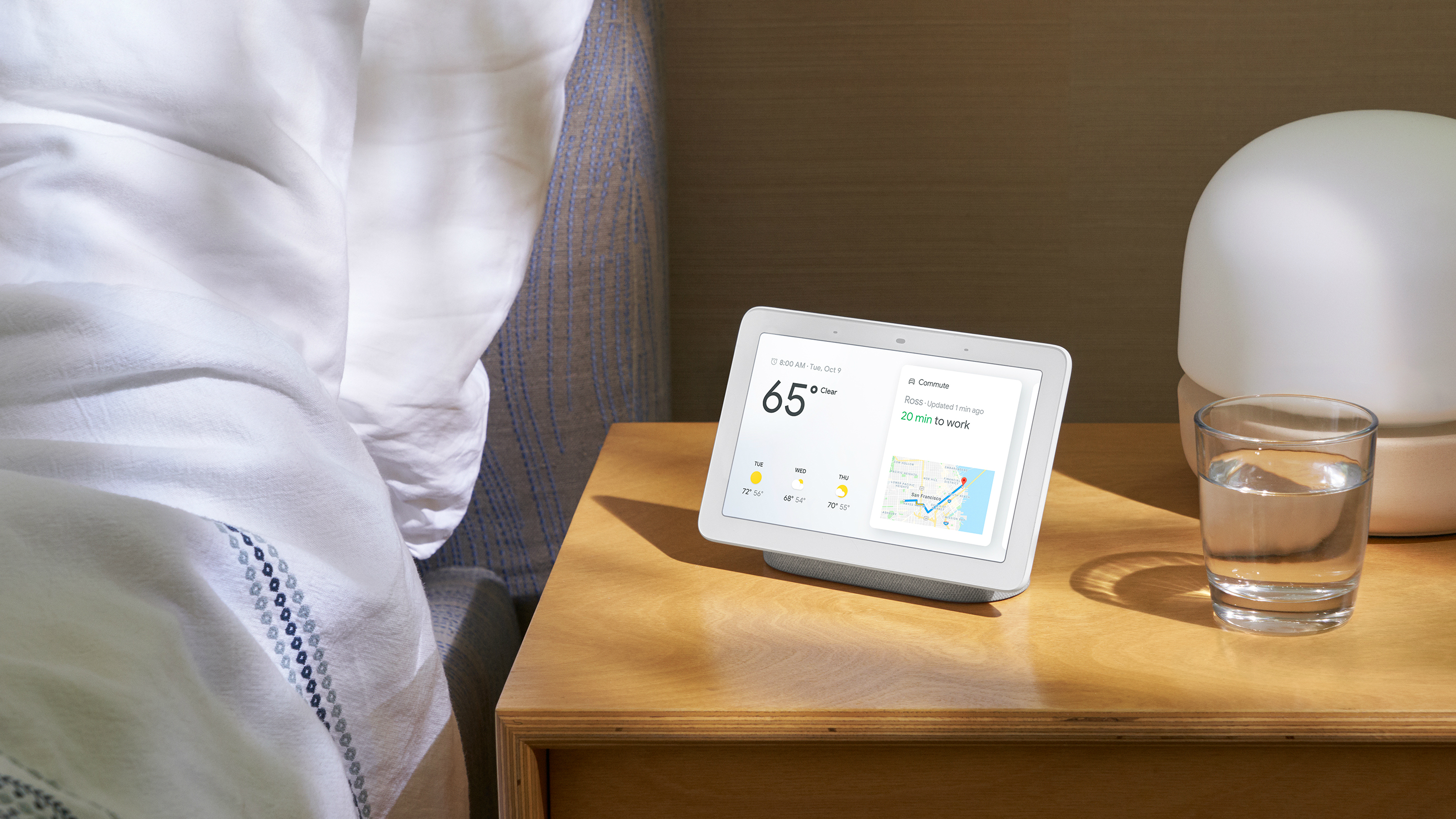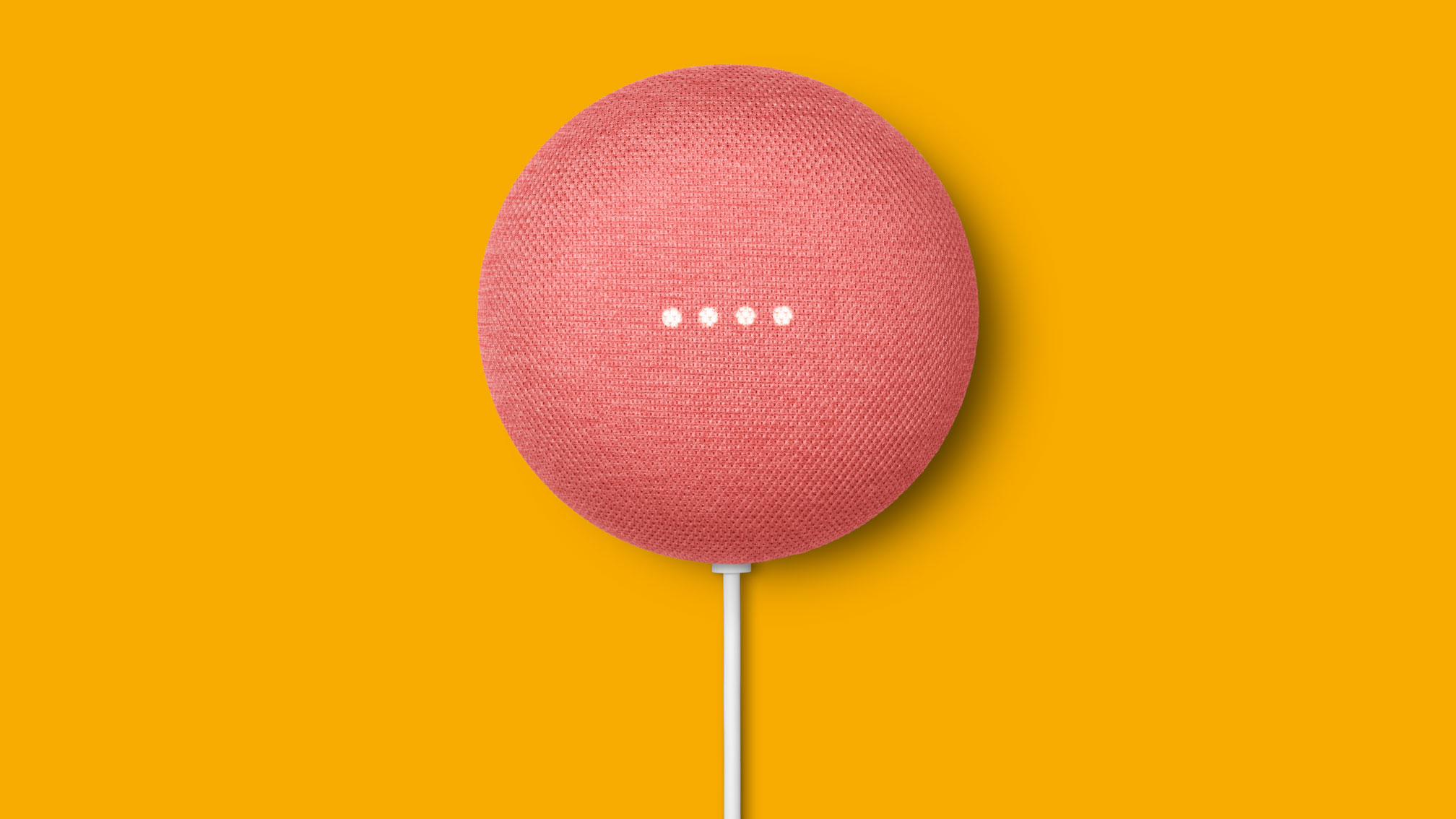Google Nest Hub now knows where you are, without even looking
Peek-a-boo, I sense you

Sign up for breaking news, reviews, opinion, top tech deals, and more.
You are now subscribed
Your newsletter sign-up was successful
Google is rolling out its clever ultrasound technology to the Google Nest Hub (neé Google Home Hub) and the Nest Hub Max, allowing these smart home devices to know where we are without using a camera.
For many of us, the idea of our smart displays constantly observing us with their built-in cameras is more than a little disconcerting – however, eschewing these cameras means that we can miss out on cool features like personalized notifications. Google's ultrasound tech could be a nifty workaround for this.
- Read our Google Nest Hub Max review
- The best smart speakers of 2019
- Google Nest Mini vs Google Home Mini: what's new?
This means the camera-less Nest Hub can now tell where you are, and adjust itself in response.
According to Cnet, the technology works by emitting tiny inaudible chirps that “bounce off objects in the environment, reflect back to the microphones and tell the device if someone is near”.

Personalized, but private
The new technology, which was unveiled alongside the Google Nest Mini at the Pixel 4 launch event in October, opens up a plethora of personalized features.
According to Engadget, when you're standing far away from Nest Hub, "it will increase the size of its fonts to make them more legible", and will show more detailed information when you're up close to the display.
Ultrasound also means that the Nest Hub can now use proactive notifications, just like the Nest Hub Max; this means that it will display notifications when it senses somebody's presence.
Sign up for breaking news, reviews, opinion, top tech deals, and more.
As it doesn't have a camera, it won't be able to display personalized notifications for each user like the Nest Hub Max, instead showing information that's available to everyone in your household.
What about Nest smart speakers without a display? Well, the Google Nest Mini utilizes this technology to control the LED lights built into its fabric grille; when audio is playing, the LEDs will light up as you approach the speaker to help you see the volume buttons.
It's not clear whether it will be possible to turn this feature off – after all, nobody wants to be blinded by their smart display when they wander into the kitchen at night.
Still, if it works as advertised, it could be a fantastic way to give people the personalization they want from their smart home products, without the perceived invasion of privacy that a constantly switched on camera can induce.
Via Engadget

Olivia was previously TechRadar's Senior Editor - Home Entertainment, covering everything from headphones to TVs. Based in London, she's a popular music graduate who worked in the music industry before finding her calling in journalism. She's previously been interviewed on BBC Radio 5 Live on the subject of multi-room audio, chaired panel discussions on diversity in music festival lineups, and her bylines include T3, Stereoboard, What to Watch, Top Ten Reviews, Creative Bloq, and Croco Magazine. Olivia now has a career in PR.